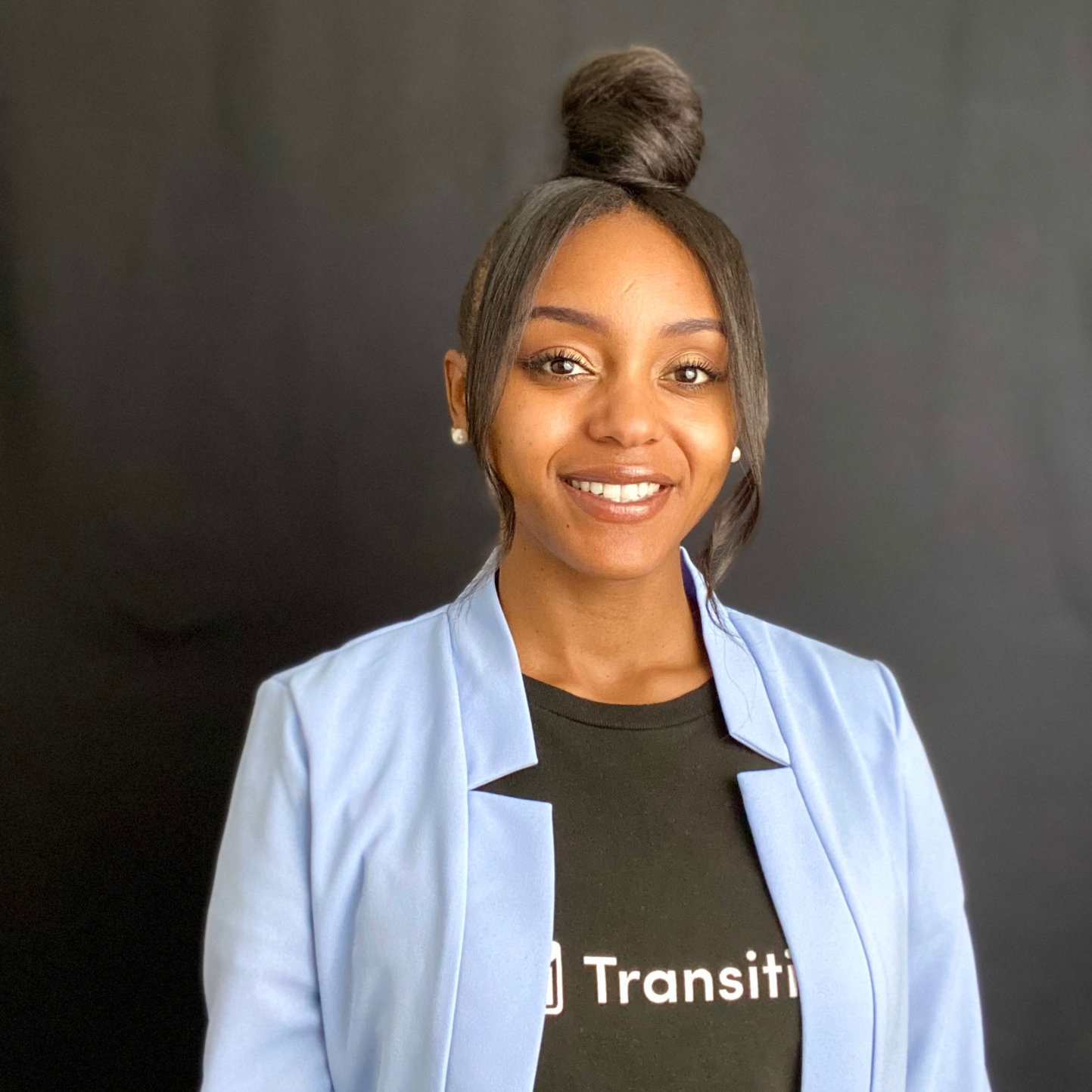How Black tech professionals are building careers in rural America
Any effort to build an inclusive tech culture must start with an understanding of the tech employment landscape. But it’s also crucial to bring visibility to success stories, like these four Black tech professionals thriving in rural America:
Any effort to build an inclusive tech culture in rural places must start with an understanding of the tech employment landscape — geographically and demographically.
The Center on Rural Innovation’s mission to increase rural tech employment and job creation is grounded in the fact that rural Americans are underrepresented in the tech economy — they make up 12% of the U.S. workforce but only 5% of the tech workforce. But the climb toward equity and representation gets even steeper for women and people of color.
Nationally, Black workers make up 13% of the labor force but only 3.7% of the technical roles at the largest U.S.-based tech companies. But the gulf is even wider in rural places, where just 1% of rural Black, Hispanic, and Native American workers are employed in tech occupations, according to American Community Survey (ACS) data.
- Interested in learning more about rural race and ethnicity? Read our story from the Rural Aperture Project that digs into who lives in rural America.
Women, meanwhile, comprise just 16% of rural tech workforce (ACS), even though CORI’s nationally representative survey of rural adults published in 2022 found that rural men and women are equally interested in pursuing tech careers. And while women of color account for 80% of new female-led small businesses, in tech, Black women account for less than 4% of female-led startups.
However, just as it’s important to state the facts, it’s also imperative to share the stories of those individuals from under-represented backgrounds who have forged career paths in tech. Below, we spotlight four rural Black tech professionals working in rural America:
AJ Crittenden
Selma, Alabama

A former baseball standout who earned a scholarship to Alabama State University, Crittenden returned home to Selma after three semesters and soon embraced the career path that’s helped define his professional life since. One door closed, another door opened.
A neighbor who worked at a local firm, Computer and Data Network Services, saw Crittenden’s return as a chance to mentor the 19-year-old who, nearly two decades later, is now the director of information technology at Marion Military Institute. Today, the mostly self-taught technology professional is proof of the power of tech careers to improve economic outcomes in rural communities.
“On a personal level it has greatly impacted me from an economic standpoint — what I was able to do for my family, the type of life we live,” Crittenden said. “That’s another one of the good things about the technology field, your earning potential, a lot of the time, you would have to have a master’s, a doctorate, to earn as much.
“But with tech, it’s really up to you. The knowledge is out there. If you’re the type of person who is hands-on, you want to learn this information yourself, you can prove to employers that you can do the job. A lot of times that kind of outweighs a traditional education.”
Lottie Jones
Pine Bluff, Arkansas
Jones grew up in Little Rock, the capital of Arkansas and the state’s largest city, and had been exposed to STEM events in high school, but she initially went to the University of Arkansas-Little Rock thinking she wanted to be a doctor.
“But then I met someone who was an engineer and she became my mentor,” Jones said. “After touring the campus with her, I was able to say, ‘OK, I like math, I can do this.’ So I switched from pre-med to engineering and was able to obtain a degree and then work in the engineering field.”
With her degree in mechanical systems engineering, Jones was able to move to Pine Bluff and get a job as a transmission planning engineer with Southwest Power Pool, which oversees the electric grid and wholesale power market in the central U.S. for utilities in 17 states.
Bob Okeke
Taos, New Mexico

Okeke moved from Kansas, where he had been studying at Kansas State, to northern New Mexico four years ago. He brought with him an educational background that included Russian, biotechnology, and political science — and the sort of curiosity that seems to be in any technologist’s DNA.
“I’ve always been, you know, the guy that opens everything up to see how it works,” Okeke said. “And then it just transformed into trying to get things fixed.”
That move the southwest also brought about a career change that began to channel his interest in technology. And then last year, that path led Okeke to a job in IT with the University of New Mexico, a position that he hopes sets him up to achieve bigger things in tech down the road.
“It’s given me more insight and is building the knowledge of becoming a better and more technical person,” Okeke said. “Because I also have my visions of founding a tech company someday, but I’m really getting what I think is a good, general grounding in selling to customers, working with different technologies, and, you know, debunking some of the things in my head. … It’s basically pulling me into an ecosystem that gives me the ability to learn and build my repertoire.”
Kayla Wright-Jackson
Cape Girardeau, Missouri

Before co-founding a career service platform, Transition, meant to address the widespread shortage of essential healthcare workers, Kayla Wright-Jackson was an HR coordinator working in healthcare who wondered why there wasn’t a better way to find qualified candidates.
“I was always interested in tech, but I thought, you know, you had to be a coder — and I wasn’t a coder. I was an administrative person,” Wright-Jackson said. “I was really good with technology and always knew how to adapt to new tools and things like that, but I never knew I would end up being a tech founder. Like, it kind of just happened.”
She had an idea and connected with Corey Shaw, a technologist with whom she was able to collaborate to build the business they’re growing today. Their company quickly caught the attention of Techstars and has continued to gain momentum since. The duo received a 1st50K award from Codefi in Cape Girardeau, were selected as recipients of the Google for Startups Black Founders Fund, and took the top prize at CORI’s 2022 Small Towns, Big Ideas pitch event.
Wright-Jackson has also recognized another way she stands out in her field — how, among the many young tech entrepreneurs she has encountered at events, there are relatively few women and even fewer Black founders. And her experience tracks with larger trends: Women of color account for 80% of new female-led small businesses, but in tech, Black women account for less than 4% of female-led startups. That lack of representation, she said, means she needs to work even harder to build her network.
“I feel like if our idea and our product wasn’t as good as it was, I wouldn’t be where I am. That’s No. 1, you’ve got to have a great product, a great idea,” she said. “And then as an under-represented individual, you’ve got to be three times better. You can’t just have a great product — that only gets you so far. It’s been interesting, you know, just having to really put yourself out there, to grind more, trying to tell your story to as many people as you can.”
It doesn’t end here.
Rural America is full of individuals like these four — people already making a difference in their communities via roles in the tech economy, and people who could do so if given the chance.
That’s why giving visibility to success stories and building tech opportunities in rural communities across the U.S. is at the center of CORI’s mission. If you’re interested in getting involved as a supporter, mentor, or investor, reach out to the CORI team at hello@ruralinnovation.us!
To learn more about our work in this space, be sure to check out our blog and sign up for our newsletter.

